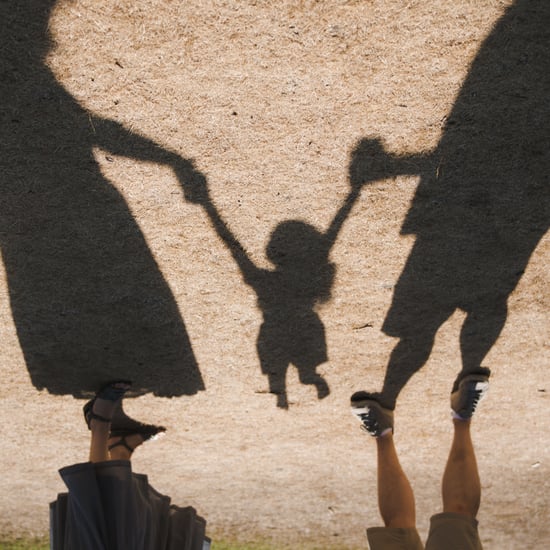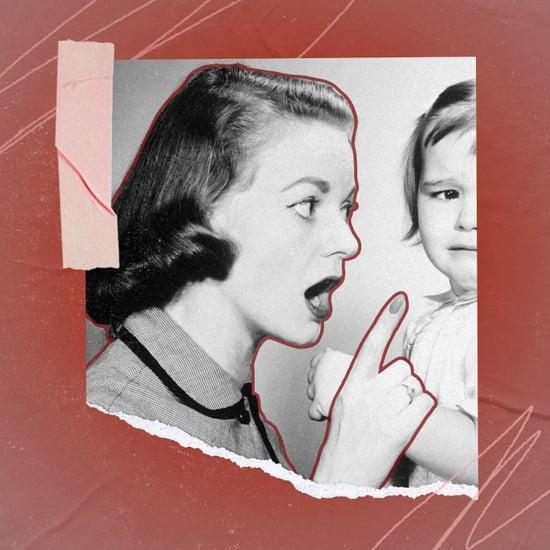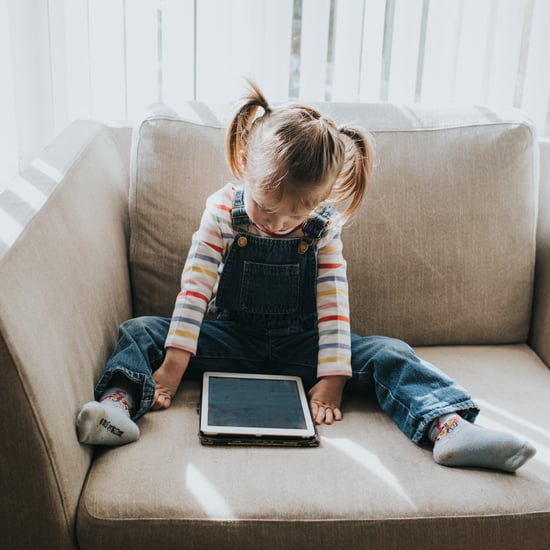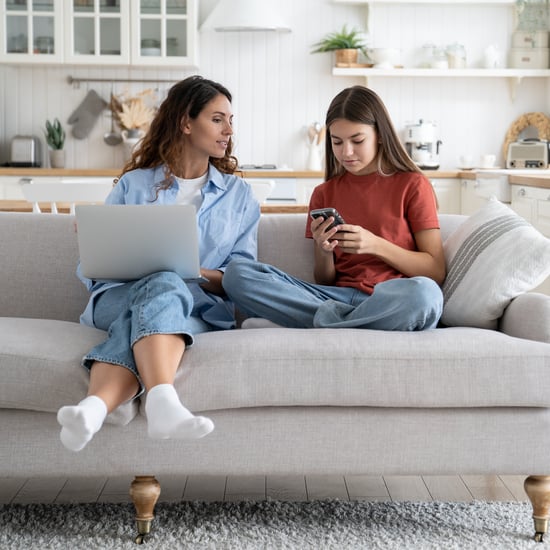Expert Tips on Talking to Kids About Politics and Elections
Exactly How to Talk to Your Kids About the Election at Any Age, According to Experts
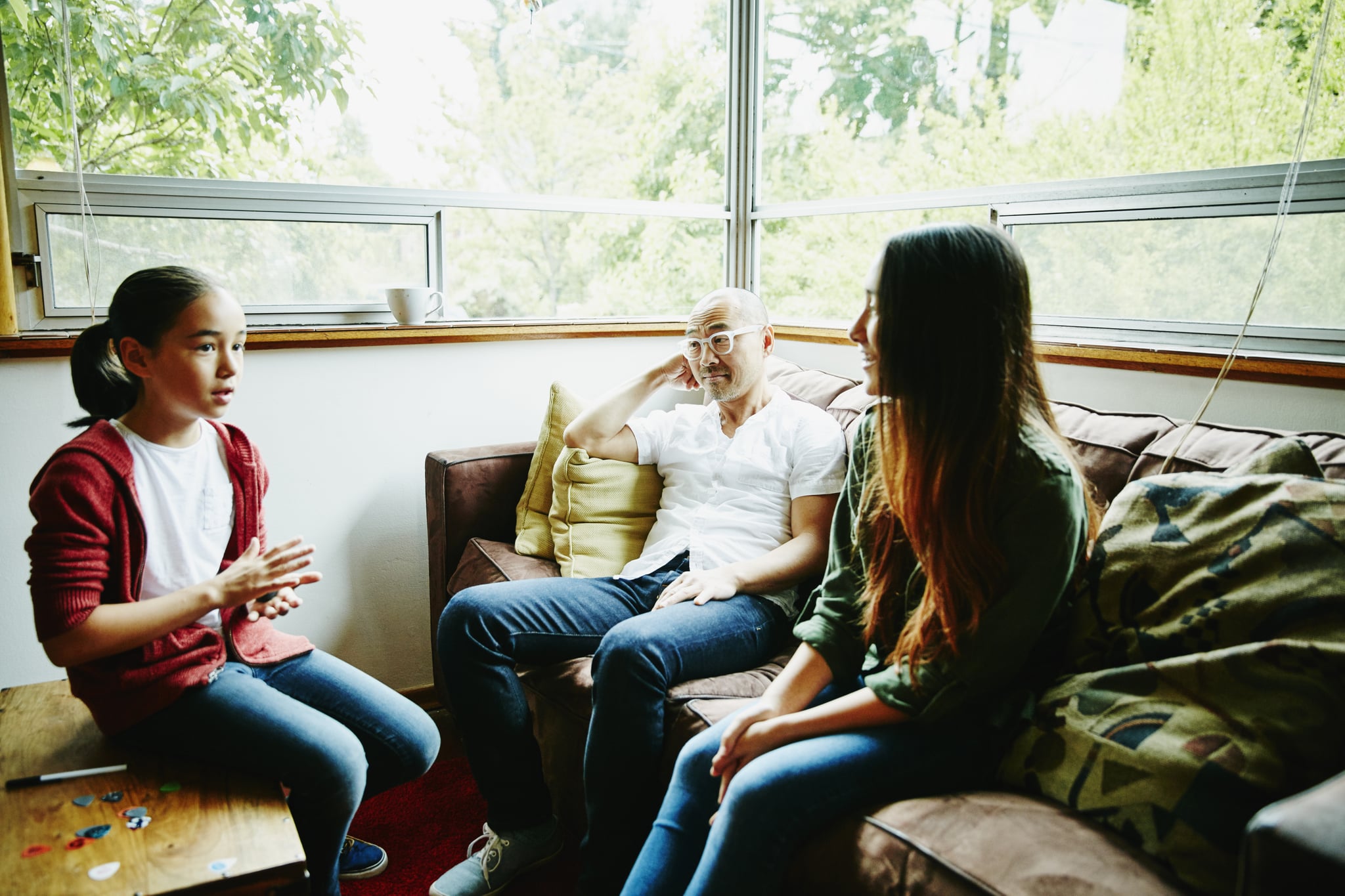
Your kids already have make tons of decisions: Ketchup or ranch dressing with fries? Playing football or doing gymnastics? They decide based on their personal preferences, opportunities, and dreams, which, surprisingly makes it easier for parents to explain one of the biggest decisions we can make in our adult lives: Which candidate we're voting for to be president of the United States.
You might be surprised (or not) to know: Kids actually pick up more than you might realise. Our family conversations around voting started with a book, Go Vote, Baby! by Nancy Lambert, which tells kids to vote for their favourites between two things, like cats or dogs. This sparked further conversations in our house about what the president does and why it's important for us to have a say in who gets that job, kind of like how they get to vote for what they want for lunch sometimes. Then, we took our kids to vote today, as early elections have officially begun in our home state of Texas. At just 3 and 1, they didn't really understand, but we still think it's important for them to see us participating in our civic duty — and moral obligations — by voting.
When I was little, I distinctly remember my dad telling me his chosen candidate was the best, and the other guy was bad. It wasn't until later — years later — that I realised it wasn't quite so black and white as that. Debating politics is complicated, especially when people on both sides feel so passionate and emotionally connected to the issues on the table. But because it is so important, we absolutely should be talking to our kids about it, no matter their age. POPSUGAR asked child development experts for specific advice on how best to address this sensitive topic.
Should I talk to my kids about politics?
Your kids will inevitably hear things from their friends or technology, so it's important to be open with them about politics, elections, and voting so that they know they're welcome to speak freely with you about any questions they have, Leela Magavi, M.D., regional medical director for Community Psychiatry and Hopkins-trained adult, adolescent, and child psychiatrist based out of California, tells POPSUGAR.
It's important to be open with kids about politics, elections, and voting so that they know they're welcome to speak freely with you about any questions they have.
"Generally, children as young as three can gain a very cursory understanding of politics," says Dr. Magavi. "Preschool children can differentiate between 'us' and 'them' with regard to parties. I advise parents to explain the government in an age-appropriate manner, help their children understand that even if they do not like a candidate, they can still value the system, encourage their children not to believe everything they hear, and to ask questions if they're worried or confused."
However, while discussing politics, be sure to keep details of your frustration and anger with a particular individual or party at bay, as this could cause distress, anger, and anxiety. Instead it's helpful to teach children about positive and negative concepts rather than "good" and "bad" people, Dr. Magavi says. "If a child witnesses a candidate saying something offencive, I would show them an example of a leader speaking kindly and with empathy to remind them that not everyone is the same, and we can have faith in our democracy."
How should I explain the election to my kids?
Having conversations about the election with kids and teens allows parents to instill the importance of civic duty in their kids and explain what it means to be a responsible community member, says Janine Domingues, Ph.D., a clinical psychologist in the Anxiety Disorders Centre at the Child Mind Institute.
"This is a wonderful opportunity for parents to discuss family and individual values and how that relates to the issues being discussed," says Dr. Domingues. "These discussions can be a way for children and teens to feel an agency in change. Given the uncertainty that comes with a global pandemic and the national anxiety that comes from this election year, children and teens may be feeling high levels of stress and fear from what they are absorbing." You can use these ongoing discussions as a way to check in with your children and teens. Model calm behaviours when having these discussions can provide kids with hope that you can get through this together as a family and community.
Specific phrases Dr. Domingues recommends using for older kids and teenagers include, "What do you know about the election?" "What questions do you have?" "What worries do you have?" "What do you think are important issues to discuss during this election?"
For younger kids, she recommends talking to them about who the president is now, what a president does, and explaining to them that voting is a way for people to choose who they want to be a leader next.
Stating your preferences is fine, and can help model healthy debating.
No matter what ages your kids are, Dr. Domingues says that it is important to always model respect when talking about your candidate preferences. "Phrasing like 'I hate' or name calling can increase intense emotions — it also takes away from what is important, which is talking about how our values align with a candidate's." Instead, saying something like, "'I think doing more for our environment is important to me and this candidate talks a lot about what they are going to do for the environment' is more appropriate and keeps conversations about the issues." Also remember that stating your preferences is fine and can help model healthy debating, you can say things like, "I really like when this candidate talks about these issues because I feel that it's important for our country."
Is it OK to talk with kids about social issues that will be impacted by the election?
Not only is it OK, you should be talking to your kids (of all ages) about social issues, says Laura Froyen, Ph.D., a specialist in human development and family studies, and the founder of Balanced Parenting Community based in Madison, WI.
"With older kids, you may go into more details on how we choose who will be on the ballot, what the major voting issues are, and how the president's choices affect their daily lives," says Dr. Froyen. "For example, you could say that the president gets to choose the Secretary of Education, and that person then helps decide what is important for kids to learn in school, which of course influences how much time his/her/their teachers spend on certain topics."
"With tweens you'd want to start introducing some of the pressing social issues — although hopefully you're talking about some of them, like the Black Lives Matter Movement, with all children," she continues. "You can address how elections influence them, helping them to understand the difference between social justice issues and political ones. It's important to remember that in terms of moral development, children under 13 are still very literal, concrete thinkers and can't always understand or navigate nuances or grey areas well."
"Your teen doesn't need to agree with you politically in order for you to support them in developing good critical thinking skills."
As teens get older — approaching voting age themselves — you should support them in learning how to learn about the candidates, the issues, and the options out there. "Being a responsible voter means being an informed voter, so helping kids become critical consumers of media and social media content is very important," adds Dr. Froyen. "Helping them ask questions like, 'Who wrote this?' 'Why might they write it the way they did?' 'Is it objective or is it opinion?' 'Is it supported by facts that we can check?' 'How would we go about checking?' Your teen doesn't need to agree with you politically in order for you to support them in developing good critical thinking skills."
How can you keep your personal biases out of the conversation?
Remember it's OK do disagree, Reena B. Patel, LEP, BCBA, parenting expert, guidance counselor, licenced educational psychologist, and board-certified behaviour analyst, tells POPSUGAR. "We have a tendency to mix judgement with facts. It is so important to listen to your child's questions first and then research the facts," she says. "I recommend parents share why they are passionate about a cause or candidate — but be clear that this is your opinion and others have a right to their opinion as well." Remind your kids that it's OK to have differing opinions, but they can still have compassion for those around them. As the adult, you can be a role model and set an example of how to set politics aside and still get along, Patel explains.
How can I help my kids feel safe when it comes to talking about the election?
"Elections, in general, are a complex and anxiety-provoking topic, especially the upcoming election with COVID-19 standing in the middle," Adi Zief-Balteriski, Ph.D., a child and teen psychologist and behavioural science specialist focussed on the intersection of community, wellness, and technology, tells POPSUGAR. She believes that you should monitor your kids' social media exposure, encourage them to talk about difficult things, and teach them what "fake news" is and how to identify whether information is true or false. "Social media has changed the way we consume news and politics, which affects kids and especially adolescents. For our children to feel safe and less confused, we must give them context and guidance so that they will not become overwhelmed with the amount of information that's out there."
You kids are not too young to understand the upcoming election or politics in general, you just have to adjust the way you talk to them. "The current election creates anxiety for parents, no matter which side of the political spectrum they are on," said Dr. Zief-Balteriski. "The most important thing is to be open to manageing kids' emotions and preparing them for when other kids' opinions may be different than theirs." You should teach them how to respond appropriately, then demonstrate that respectful behaviour yourself so your kids can learn from it.
"We can look at this situation as an opportunity to educate our kids about how the world really works."
Finally, Dr. Zief-Balteriski recommends watching what you say around your kids. Dr. Magavi concurs: "I would not recommend making statements such as 'if he is elected, we're moving to Australia' in front of children." If your kids hear this kind of language, then they might think that means they will have to leave their house, their friends, and everything they know — which, in turn, will lead to unnecessary anxiety and anger.
"For all the parents out there (myself included), we can look at this situation as an opportunity to educate our kids about how the world really works, what's real and what's not, how to become an individual thinker, and how to address and handle conflicts in a healthy way while respecting other people's opinions," added Dr. Zief-Balteriski. "How we as parents handle it will also have a huge impact on our kids' future perspectives, so do the best you can!"




